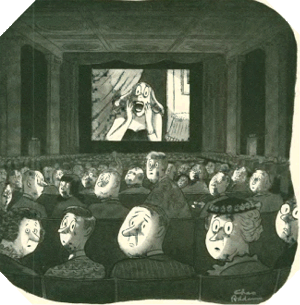 |
| Because I could not stop for death, he kindly stopped for me |
"Does not Eternity appear dreadful to you...I often get thinking of it and it seems so dark to me that I almost wish there was no Eternity. To think that we must forever live and never cease to be. It seems as if Death which all so dread because it launches us upon an unknown world would be a relief to so endless a state of existense."
... Emily Dickinson (1830-86), American poet


Dickinson´s unsurpassed precision of statement is due to the directness with which the abstract framework of her thought acts upon its unorganized material. The two elements of her style, considered as point of view, are immortality, or the idea of permanence, and the physical process of death or decay. Her diction has two corresponding features: words of Latin or Greek origin and, sharply opposed to these, the concrete Saxon element. It is this verbal conflict that gives to her verse its high tension; it is not a device deliberately seized upon, but a feeling for language that senses out the two fundamental components of English and their metaphysical relation: the Latin for ideas and the Saxon for perceptions—the peculiar virtue of English as a poetic tongue. Only the great poets know how to use this advantage of our language.
ReplyDeleteWho would fardels bear,
ReplyDeleteTo grunt and sweat under a weary life,
But that the dread of something after death,
The undiscovered country, from whose bourn
No traveller returns, puzzles the will,
And makes us rather bear those ills we have
Than fly to others that we know not of?